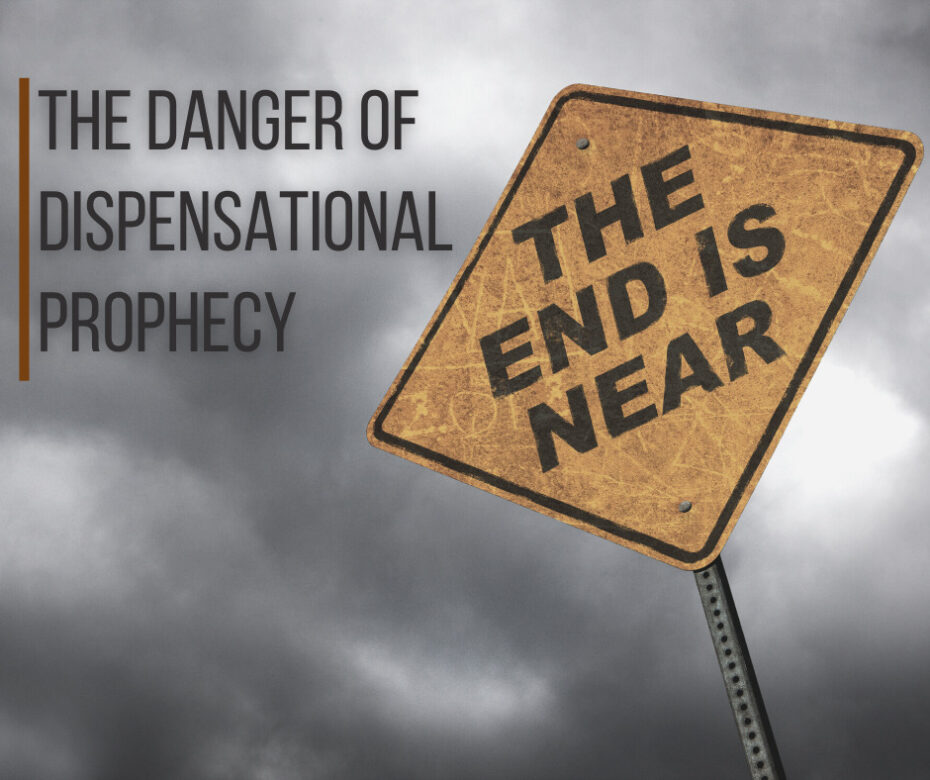“Hypocrites! You can discern the face of the sky and of the earth, but how is it you do not discern this time?” (Luke 12:56).
I love Biblical prophecy.
God made sure nearly a quarter of the Bible is prophecy, so it is important.
However, while I am a committed pre-millennial, pre-tribulational, Dispensentionalist, I cringe at those streams of Dispensational theology that like to compare contemporary news stories to Biblical prophecies to show the end is just around the corner.
I remember my mom watching prophecy shows when I was a kid. At first, it was somewhat interesting. The host would read some piece of scary news and then show that was exactly what the Bible said would happen.
- The European common market.
- The Soviet threat.
- The oil crisis.
- AIDS.
- The Gulf War.
- Saddam Hussein.
- The Maastricht Treaty establishing the European Union.
- Iran.
- Y2K.
- The housing bubble.
- The rise of ISIS.
It was all a sign that Jesus would come back extremely soon.
The only problem is, year after year, the headlines kept changing, but no sign of Jesus.
I know that some people love that kind of theology. They keep buying the books, supporting those ministries, and attending the (much smaller) conferences. They keep listening to how the end of the world is just around the corner, and love to share their worries and speculations with whoever will listen.
But is that helping or hurting the cause of Biblical prophecy?
There was a time when Dispensationalism was on the rise in America. Prophetic conferences attracted large numbers of Bible believers from a wide range of denominations.
With the re-establishment of Israel as a country in 1948, interest surged even more.
Then Hal Lindsey published The Late Great Planet Earth, and it became one of the bestselling non-fiction books of the entire decade (the 1970s). A movie was even made about it, narrated by Orson Welles. Dispensationalism went mainstream. He strongly suggested the 1980s were the “countdown to Armageddon.”
Only nothing happened.
The 1980s came and went, and instead of leaving their unbelieving friends and family behind in the Rapture, many Christians left Dispensationalism behind.
Speculative prophetic interpretation has done enormous damage to the cause of Biblical prophecy. When Jesus did not return as expected, people dismissed the whole subject of Dispensationalism as malarkey.
They shouldn’t have. But they did.
This past Sunday, I was visiting a church for the first time and the pastor said that the coronavirus was setting the stage for Antichrist to make his appearance. He added that he was not going to worry about that because he expected to be raptured any moment now. He didn’t say it would be within the next couple of years, but he strongly implied it.
Really?
I think that kind of speculation does harm to the cause of Dispensational theology and to the study of Biblical prophecy. How so? After hearing that sermon, I am sure that many people in that congregation, including many kids, are now thinking that if Jesus does not come back before the coronavirus is over, that proves Biblical prophecy is false.
Of course, that will prove no such thing. What the pastor claimed and what the Bible teaches are two different issues, and people should distinguish between the two. But frankly, many people can’t think that clearly. To them, if the pastor is wrong, that will prove the Bible is wrong.
I suppose my point is simply this—think of those people. Do not lead them astray. Study prophecy, but do it with a good commentary, not with a newspaper.


